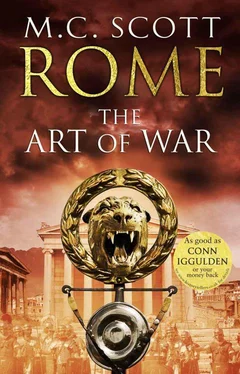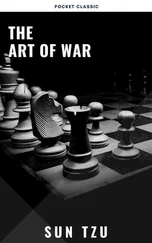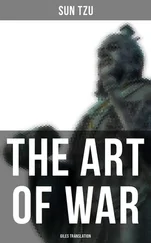M. Scott - The Art of War
Здесь есть возможность читать онлайн «M. Scott - The Art of War» весь текст электронной книги совершенно бесплатно (целиком полную версию без сокращений). В некоторых случаях можно слушать аудио, скачать через торрент в формате fb2 и присутствует краткое содержание. Жанр: Исторические приключения, на английском языке. Описание произведения, (предисловие) а так же отзывы посетителей доступны на портале библиотеки ЛибКат.
- Название:The Art of War
- Автор:
- Жанр:
- Год:неизвестен
- ISBN:нет данных
- Рейтинг книги:3 / 5. Голосов: 1
-
Избранное:Добавить в избранное
- Отзывы:
-
Ваша оценка:
- 60
- 1
- 2
- 3
- 4
- 5
The Art of War: краткое содержание, описание и аннотация
Предлагаем к чтению аннотацию, описание, краткое содержание или предисловие (зависит от того, что написал сам автор книги «The Art of War»). Если вы не нашли необходимую информацию о книге — напишите в комментариях, мы постараемся отыскать её.
The Art of War — читать онлайн бесплатно полную книгу (весь текст) целиком
Ниже представлен текст книги, разбитый по страницам. Система сохранения места последней прочитанной страницы, позволяет с удобством читать онлайн бесплатно книгу «The Art of War», без необходимости каждый раз заново искать на чём Вы остановились. Поставьте закладку, и сможете в любой момент перейти на страницу, на которой закончили чтение.
Интервал:
Закладка:
Why? Because the whole thing was a mistake. If you’re going to follow someone all the way to Rome, you have to make sure it’s the right man, and Vitellius was never that.
I said so in January when the whole thing started about not renewing our oath to Galba and swearing to Vitellius instead. I argued as long as I could, but there’s a point when loyalty to the old regime becomes treachery to the new and I had my men to think of.
So I swore with the rest of them and after that… when it comes to the edge, a man’s word is his only coin. If you can’t keep an oath, you’re no better than the barbarians.
On we trudged, past the row of dilapidated priests’ dwellings, each leaning on the next like an old man in want of a stick, and on, shuffling in through the vast and ancient gates of the temple, which has been home to Jupiter, Juno and Minerva since the time when Rome was too poor to build them a temple each and had to house all three under the one roof. Later, when there was gold enough and more to spare, nobody was about to offend two out of the three most revered deities in the city by rehoming them elsewhere.
So we were left that day to wait under the combined gaze of the three, each one cast in bronze, three times life-sized, standing amongst the columns in mute tolerance of us mortals who milled around their feet.
It was cold, then. We had stopped marching and the rain sank into our bones. I was a stinking mass of fulled wool and wet linen; a drenched dog would have smelled better.
The priests had lit extra braziers against the cold, and were burning incense on them by the fistful. I breathed in feathers of blue smoke that tickled my nose to the edge of a sneeze until, eventually, we officers were summoned forward into the central sanctum. In there, I didn’t sneeze at all.
Since I was a boy, I have been struck silent by this place, by the weight of empire bearing down on the roof beams. Built by the good king Tarquin at the founding of Rome, dedicated by the hero Horatius, a shrine of some sort has stood on this site since the city was no more than a spark in one man’s imagination.
Legend said that if the temple were to fall, Rome would fall with it: everyone knew this. Nobody, of course, expected it to happen.
‘Sextus Geminus! Formerly of the Fourth Macedonica!’
My head snapped up; it does when you hear your own name. I looked to the altar and there, staring at me, was Aulus Caecina, legionary legate of that very IVth Macedonica, the general who had driven us through the Alps at a time when everyone else said winter had made the routes impassable. If any one man made Vitellius emperor, it was him. I have never quite known how to be in his company, and knew now least of all.
At least he was alone. There were priests on either side of him, of course, but no other officers. I had been afraid that Lucius might have been there; seeing Caecina alone was the first good thing that happened that day.
I did what eighty-three men before me had done, and seventy-six did after. I took eight good paces forward, knelt before the bright, hot fire, and stretched out my left hand.
A priest standing at Caecina’s right side thrashed the air about my head with a laurel branch, sign of victory. Another priest, smaller and broader in the beam, glanced down at his notes, filled his lungs and bellowed, ‘Sextus Geminus! First centurion, fifth cohort, the new Praetorian Guards!’
So that was my new rank. It was the same as the old one, except that the Guard was… the Guard. Better paid, kept in Rome, responsible for guarding the emperor’s life with our own.
Caecina was talking to me, genially enough.
‘… so thoroughly deserved. I never saw a man swing his century faster to face a new enemy. This is small recompense for your dedication and valour-’
He was good. He caught my hand and slid on a silver arm ring, which was my reward for my part in the battle at Cremona. He pushed it up beyond the elbow with the same kind of deft, impersonal precision the priests use when they cut a bull’s throat.
It was his words that mattered far more than what he did. There was a point in the assault on Cremona when I’d turned three centuries round to face an assault on our right flank and he remembered it as if he’d been there in the mud and the slaughter, hearing every cursed command.
Very likely, he remembered something equally relevant for every one of the hundred and fifty-nine men with me; it’s who he was, and that kind of care for his men was one of the reasons we’d mutinied against Galba when he asked us to, and then followed him to the brink of civil war and back.
Like Corbulo, like Vespasian in the east, Caecina was a soldier’s soldier and we all respected him for it. What the rest didn’t know was what he was like behind closed doors. Nor had I until the night before.
The trophy ring fitted perfectly. Cool silver hugged my flesh, so that I could feel the hard, fast throb of my veins against it. My whole body was shuddering, finely, like a leaf; if anything was going to happen, it had to happen now.
And it did.
As Caecina stepped back, the priest threw more incense on to the altar; much more than before. A broad fan of smoke splayed out, cutting us off from the line of waiting men behind.
I was alone then, with the priests and the altar and this man who remembered everything. I swallowed and heard my own larynx pop. Caecina looked at me as if I’d farted.
From his side, the bass-voiced priest bellowed, ‘Choose! And may the gods guide your hand!’
A black silk bag was thrust forward at waist height. As each man had done before me, I slid my hand through the bag’s narrow mouth, and felt Nothing.
I panicked, I will admit that now, to you. This was a lottery. I was eighty-fourth in a line of a hundred and sixty men. I was expecting to feel seventy-seven tokens of folded lead from which I was required to select one. For nearly a day, I had been steeling myself against this moment.
But now it was here, my hand closed on empty air. In shock, I looked up at Caecina and read on his face such intensity of cold, flat anger that I shoved my hand back in again, fumbled about and — there! — felt a single filet of lead lying in the bottom, tucked into a corner hidden by the overlying fabric.
It was the length of my thumb, folded over at either end and sealed in the middle with wax, and when I drew it out I saw that the wax was black and that the imprint of a chariot stood proud on the matt surface. Vitellius was favouring Nero, after all: the chariot had been his emblem, too.
I didn’t break the wax seal; my orders — all our orders, given to us in the officers’ quarters just last night — were to wait, and open them later, in private.
I held the tab out on the flat of my palm to show I had taken it. Caecina, restored to good humour, nodded briskly and I took my eight paces back and that was it: over.
It wasn’t over, of course, it was only just beginning, but it felt like a huge step taken. I wasn’t alone in feeling heartsick, I think; it was on other faces as we shuffled on sideways and sideways and watched each man take his eight steps forward and pick his lead from the lottery.
There was a tedious similarity to the proceedings broken by small differences in the rewards for our endeavours; Juvens, three men after me, was awarded a spear for personal valour, not an arm band, and Halotus, who came eight after him, was given on behalf of his entire century a disc to display on their standard.
Whatever he was awarded, though, each man at the same time took a folded token from the black bag and stepped back, keeping the seal unbroken.
The lead grew warm and soft in the waiting. I kneaded it between my fingers; by the time the lottery came to an end, it was an acorn, which once had been a small, flat lozenge.
Читать дальшеИнтервал:
Закладка:
Похожие книги на «The Art of War»
Представляем Вашему вниманию похожие книги на «The Art of War» списком для выбора. Мы отобрали схожую по названию и смыслу литературу в надежде предоставить читателям больше вариантов отыскать новые, интересные, ещё непрочитанные произведения.
Обсуждение, отзывы о книге «The Art of War» и просто собственные мнения читателей. Оставьте ваши комментарии, напишите, что Вы думаете о произведении, его смысле или главных героях. Укажите что конкретно понравилось, а что нет, и почему Вы так считаете.












